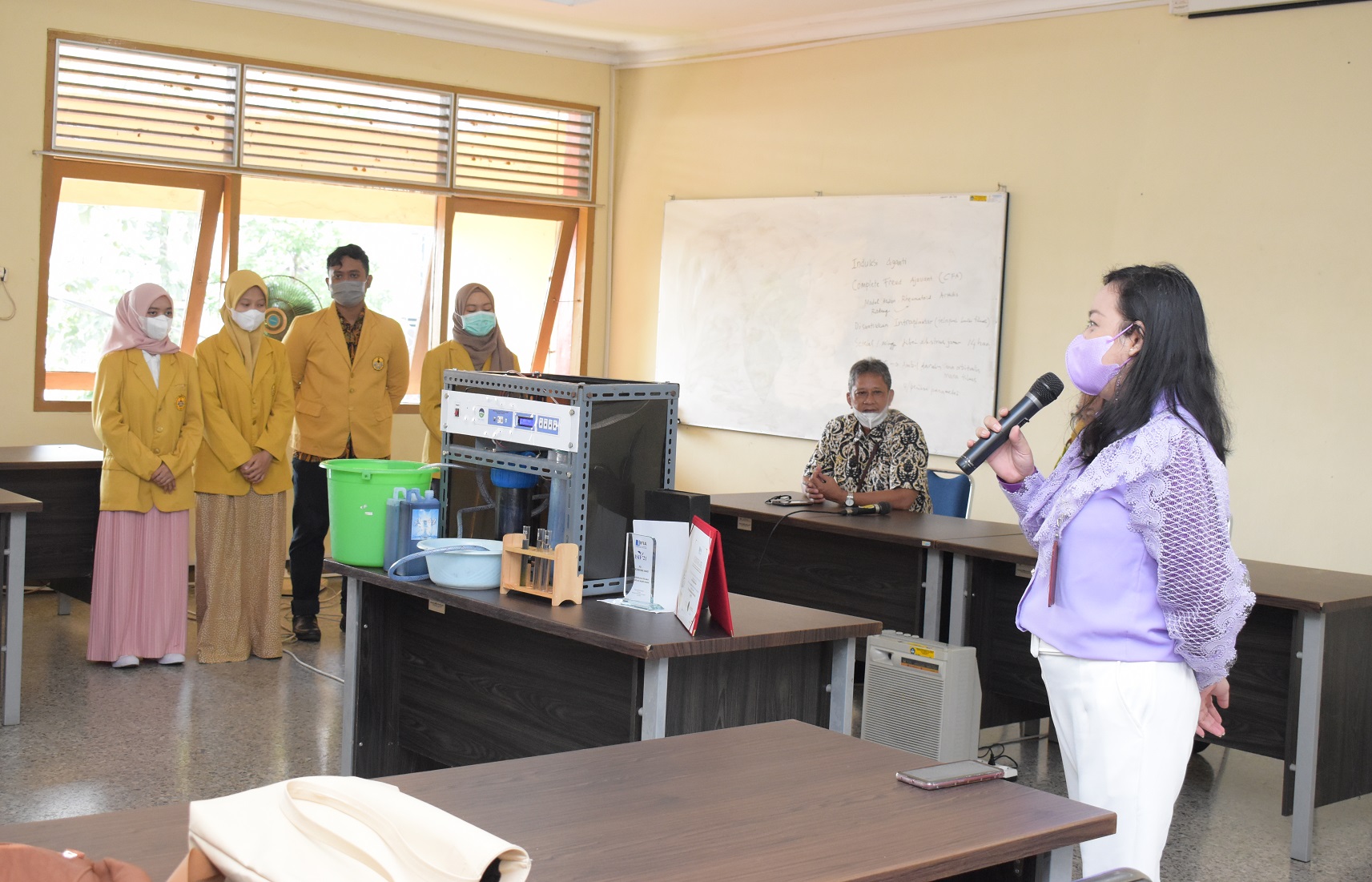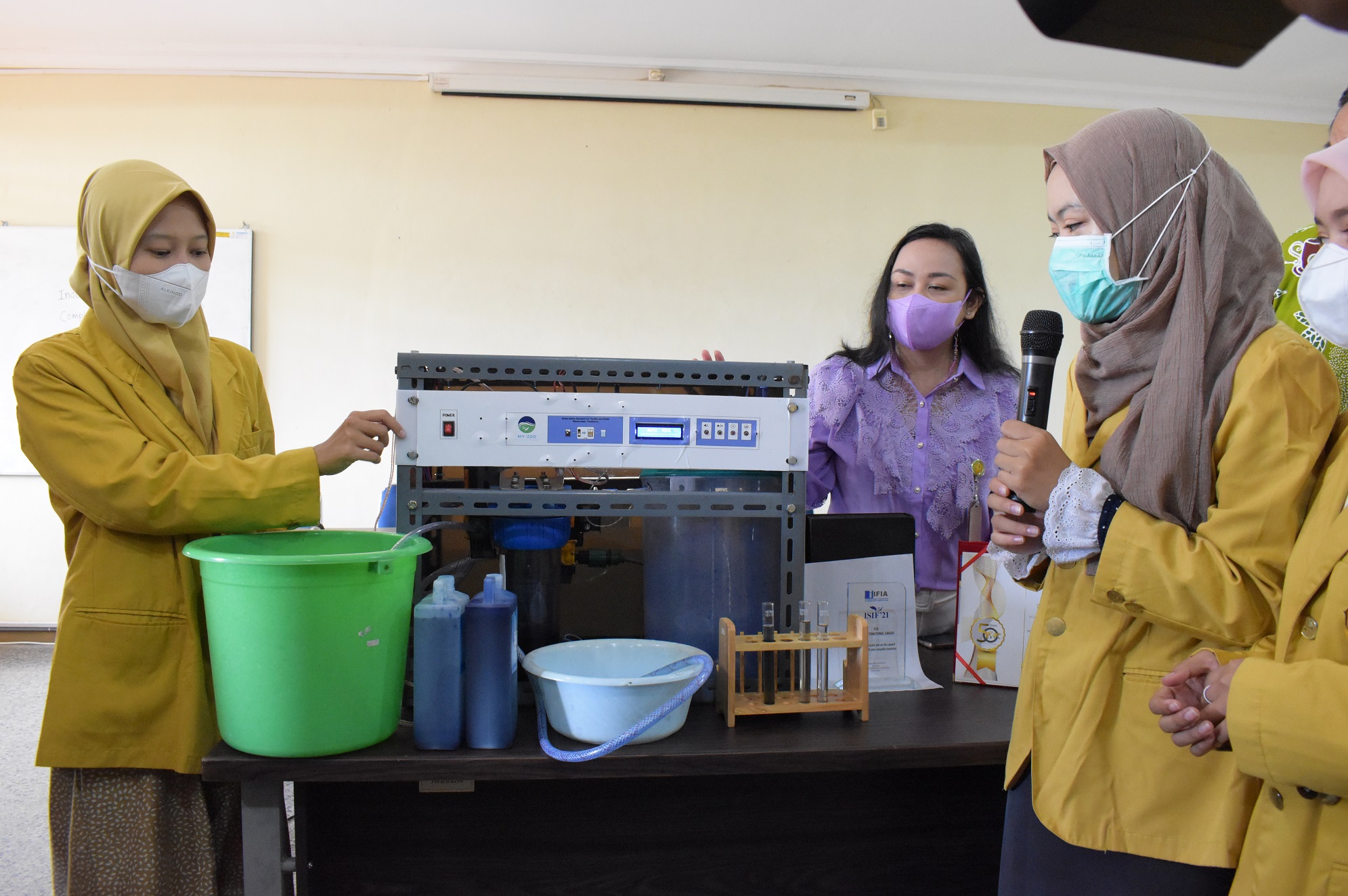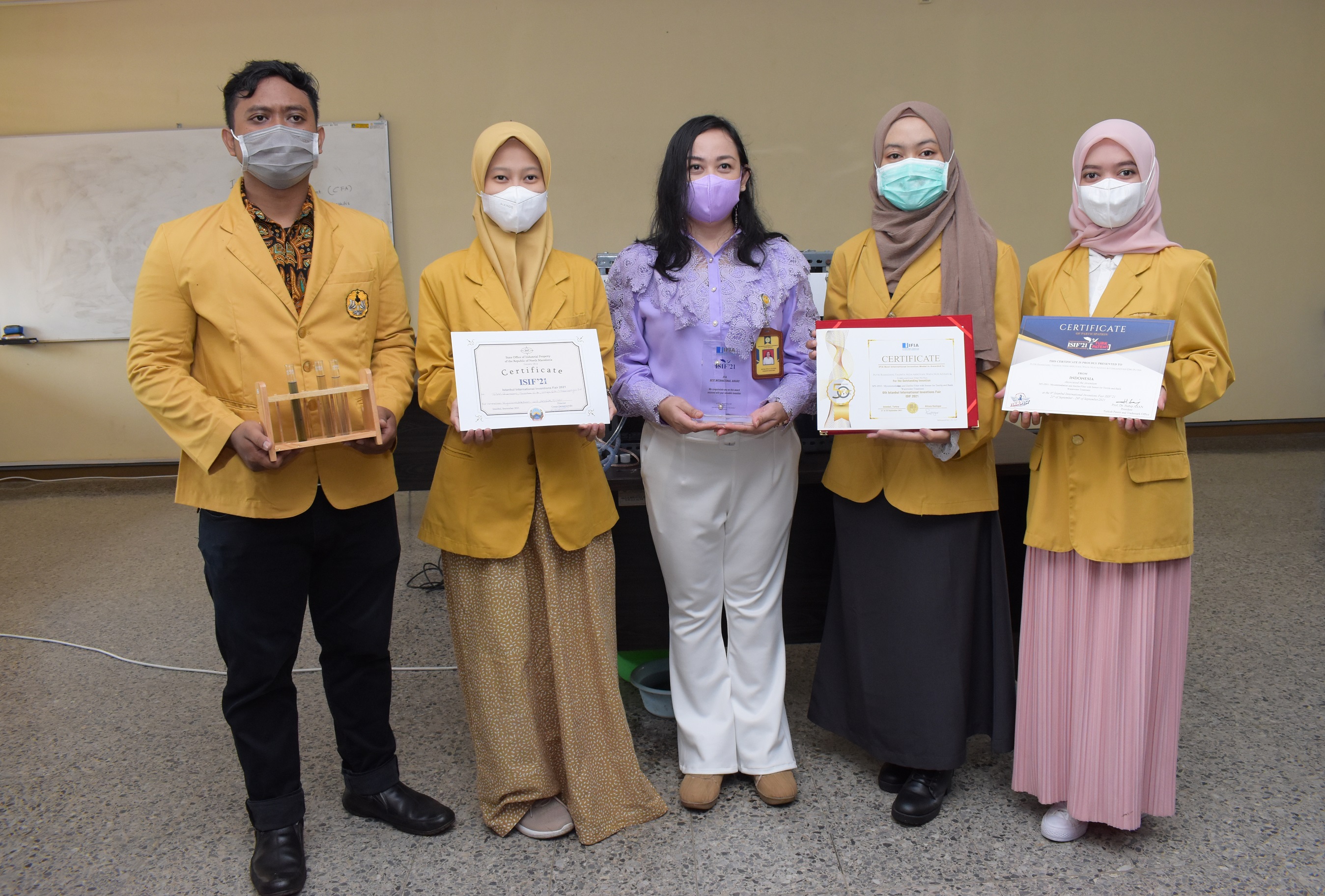UNSOED Students Carve Out Achievements in Istanbul Turkey with Batik Waste Processing Equipment
[unsoed.ac.id, Thu, 04/11/21] Four students from Universitas Jenderal Soedirman (Unsoed) Purwokerto consisting of Putri Ramadani, Yasinta Nida Arroyan, Wafa Nur Azizah, from the Faculty of Biology and Febriansyah Dwi Putra from the Faculty of Engineering with Dr. Ratna Stia Dewi, S.Si, MSc made an achievement in the international competition “6th Istanbul International Inventions Fair 21”. Putri and the team successfully won the best invention medal and the best international award with the invention entitled “MY-ZEO: Mycoremediation and Zeolite Filter with Sensor for Textile and Batik Wastewater Treatment”.
MY-ZEO is an innovative product in the form of a waste processing tool, especially textile dye waste and batik based on fungal microorganisms. This international activity, which was also attended by well-known universities from various countries, including Indonesia, was held on September 21-26 2021.
The designed tool uses biological materials in the form of technology, microorganisms, fungi, and natural materials as filtration which is driven by an electric motor. MY-ZEO can restore the content of environmental pollutants in batik wastewater to be more environmentally friendly. In addition to color, this tool can recover Total Suspended Solid (TSS), total Chromium, Free Ammonia, Phenol, and pH, so that it is in accordance with the quality standard values.
Industrial waste, including batik waste, is a problem that cannot be handled optimally. Procurement of waste processing equipment at high prices is the main obstacle for batik home industry players. MY-ZEO can be one of the solution efforts, with its natural basic ingredients that can be produced sustainably and can be utilized at a more economical nominal.
Dr. Ratna Stia Dewi S.Si., M.Sc, a supervisor who is a Biology lecturer, said that this research has been carried out since a year ago, which is by introducing enzyme technology to degrade or neutralize batik waste to become clean. “This is the development of the previous innovation, which we made as biological innovation, this time we made it into a tool. This is in the form of a 13.5-liter prototype so that it can be assigned to large and home industries," she explained.
Dr. Ratna explained that textile or batik waste has components that greatly pollute the environment or river biota. “Harmful compounds in textiles can have a dangerous impact. Microbes which are exposed to batik waste can mutate genetically and produce new microbes that are harmful to the environment, " she said.
Putri revealed that the competition in Turkey was a very valuable experience. "We can meet participants from various countries, including participants from other well-known universities from Indonesia," she said. Putri hopes that this can increase the enthusiasm in making achievements and can also be an inspiration for other friends. "At the time of the announcement, we initially did not believe it, coincidentally the announcement was also in Turkish, so we only realized when we were told by a friend from Turkey using English. We were surprised, happy to be the best and at the same time get the best invention awards," she said.
The struggle of Putri and friends in the midst of a pandemic that has not subsided is also not easy. Various quarantines must be carried out both when leaving and returning to the country.
#unsoedmajuterus



